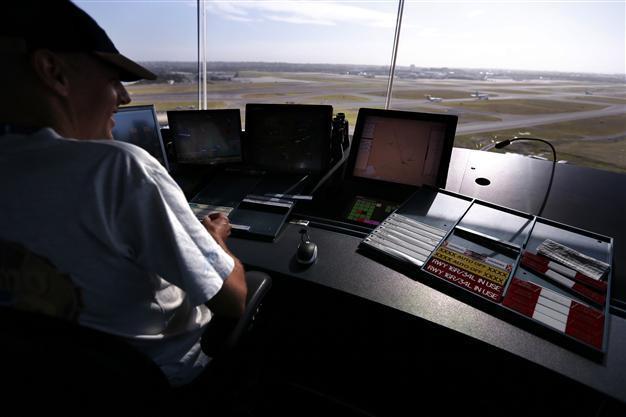French air traffic controllers go on strike
PARIS - Agence France-Presse

The air traffic controllers' main union, the SNCTA, called the three-day strike to denounce "the direct consequences on national policies of European constraints" on the sector. REUTERS photo
Air traffic controllers in France went on a three-day strike Tuesday in protest against European Union plans to liberalise the sector and create a single airspace.
The protest movement was also expected to spread to other EU countries, such as Austria, Belgium, Britain, Bulgaria and Italy over worries the plans will affect safety and working conditions.
Some 1,800 flights were cancelled in France Tuesday after the aviation watchdog asked airlines to cut their flights to and from Paris and other cities to avoid last-minute mayhem on the day of the strike.
"For the moment, the situation is calm in the two (Paris) airports but delays are to be expected during the day," said a spokesman for Aeroports de Paris, the company that runs the capital's two main airports.
Low-cost carrier Ryanair blasted the work stoppage, saying it had had to cancel more than 100 flights, adding that passengers were being "taken hostage" and calling on the EU Commission to put an end to controllers' strikes.
The work stoppage is just one of the planned strikes in France this week, with railway workers due to stop work on Thursday, affecting train traffic, as are employees of the country's postal services.
The air traffic controllers' main union, the SNCTA, called the three-day strike to denounce "the direct consequences on national policies of European constraints" on the sector.
Other unions that also represent air traffic controllers are planning to stop work Wednesday to protest against the "Single European Sky", which aims to bring the management and regulation of European airspace under EU control.
The EU Commission says the plan could triple its airspace capacity, improve safety ten-fold, slash pollution by 10 percent and reduce air traffic management costs by 50 percent.
